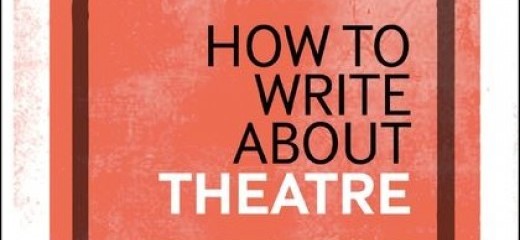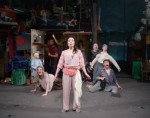
Criticism For Theatre's Sake
by Mark Fisher
Editor’s note: thINKing DANCE is excited to be sharing articles with our friends at Culturebot. Please let us know how you are enjoying the conversation.
___
The following is an excerpt from Chapter 20 of Mark Fisher’s book How To Write About Theatre, published by Bloomsbury and released in paperback in August, 2015.
In any discussion about theatre and criticism, there’s usually one wag who stands up and says: ‘Those who can – do. Those who can’t – criticize.’ Everyone laughs because it seems the critics have been cut down to size. How humiliated they must be to be exposed as failed actors (or failed directors or failed playwrights, according to the accusation). Even the critics laugh for fear of appearing aloof. And to be fair, it is a viewpoint with a fine pedigree. Samuel Taylor Coleridge said critics are ‘usually people who would have been poets, historians, biographers, if they could; they have tried their talents at one or the other and have failed; therefore they turn critics’.[1] Percy Bysshe Shelley said much the same thing: ‘As a bankrupt thief turns thief-taker in despair, so an unsuccessful author turns critic.’[2] But the argument crumbles under scrutiny for these three reasons:
First, it’s just an assertion. The remark has an aphoristic quality that makes it sound like an immutable truth. But it is no such thing. Switch the words around and it makes just as much sense: ‘Those who can – criticize. Those who can’t – act.’ To take Coleridge’s example, you can quite imagine someone failing as a critic and becoming a biographer instead. Of course some theatremakers have become critics, just as some critics have become theatremakers, but that doesn’t make it a universal truth.
Second, it presupposes that criticism is in some way lesser, that it requires a diminished set of skills and that it is a last resort. But critics take up the job not out of desperation nor to wreak revenge on an industry that has let them down, but because they want to. That may be a difficult concept for a theatremaker to grasp, but all the unpaid bloggers who write reviews for the love of it demonstrate it to be the case.
Read more from the excerpt of Mark Fisher's chapter (and peruse his endnotes) at Culturebot.
___
Originally published October 15, 2015 at culturebot.org .
November 17, 2015









